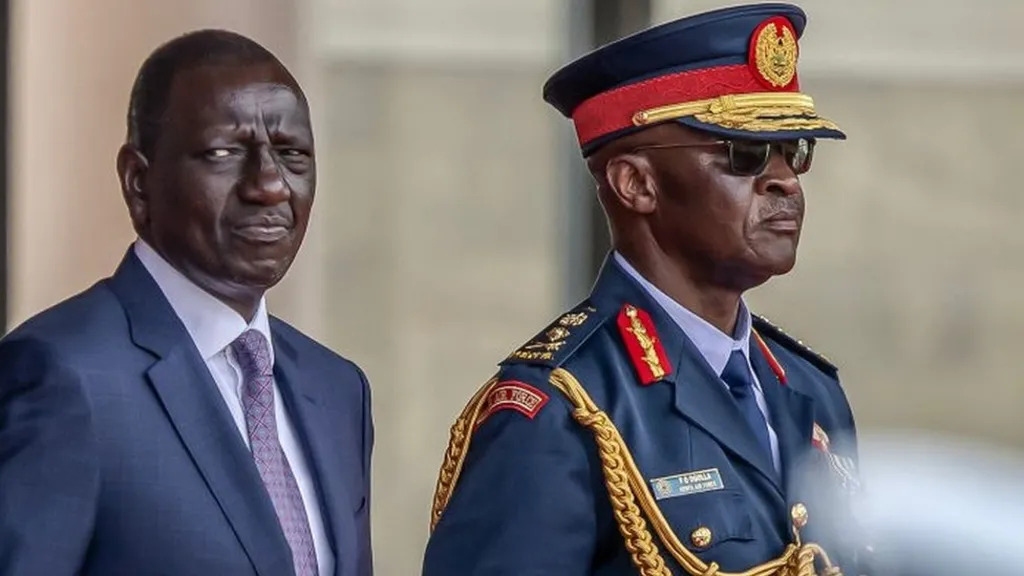The International Criminal Court (ICC) in the Hague, the Netherlands issued a warrant of arrest for Russian president Vladimir Putin on 17 March 2023.
It accuses him of being responsible for war crimes in Ukraine, including the unlawful deportation of children.
More than 120 states are party to the ICC’s Rome Statute and are now obligated to detain president Putin if he sets foot on their territory.
The international community reached a historic milestone on 17 July 1998, when 120 states adopted a statute in Rome known as “the Rome Statute”, which established the ICC.
For the first time in the history of humankind, states decided to accept the jurisdiction of a permanent international criminal court to prosecute the perpetrators of the most serious crimes committed by their nationals.
PRIMARY MISSION
The ICC is not a substitute for national courts.
In terms of the Rome Statute, every state has the duty to exercise their criminal jurisdiction over those responsible for international crimes.
It can only intervene where a state is unable or unwilling to genuinely carry out an investigation and prosecute the perpetrators.
Hence, the ICC’s primary mission is to help put an end to impunity as a whole, and contribute to preventing crimes, such as war crimes, crimes against humanity and genocide.
The idea of trying alleged perpetrators for crimes against humanity pre-dates the existence of the ICC.
It began in 1945 after World War II with the Nuremberg trials, which were held to punish key members of the hierarchy in Nazi Germany for the Holocaust and other atrocities.
They included Nazi leader Adolf Hitler’s deputy Rudolf Hess, who was sentenced to life imprisonment and died by his own hand in 1987.
LEGAL DILEMMA
The ICC clearly believes there is sufficient evidence to accuse the Russian leader of war crimes in Ukraine.
However, the practical and logistical problems in prosecuting him are immense, if not practically impossible.
There are at least two big obstacles to enforcing the Rome Statute in Russia.
Firstly, Russia does not recognise the ICC’s jurisdiction.
Further, the statute lays down unequivocally that it is every state’s duty to exercise its own criminal jurisdiction over those responsible for international crimes.
Compounding this is that while Ukraine has signed the treaty, it has not yet ratified it.
Russia has called the ICC’s decision “outrageous and unacceptable”.
Faced with such defiance, it seems unlikely the ICC’s warrant will have any impact on Russia’s military operations in Ukraine.
President Putin has not actually been charged with crimes against humanity.
If he were, it would pose another legal dilemma – the United Nations has not yet codified “crimes against humanity” in the dedicated treaty of international law.
Based on the above factors, the ICC’s warrant of arrest for Putin is flawed.
SHIFTING SPHERES
In its first two decades, the ICC has been inconsistent in applying the statute.
It is considered biased against the African continent. A majority of investigations have been related to African countries.
There have been many illegal wars led by the United States and its proxies, where innocent people have been killed, property destroyed and their states illegally seized and occupied with no action from the ICC.
The ICC has not pursued any Western leader over the Iraq war, the genocide and land grabbing in Palestine, war crimes in Yugoslavia, Syria, Afghanistan, Libya, and other such acts.
After the end of World War II, the multi-polar international system was characterised by the pursuit of a balance of power among the great powers in which probably only two were strong enough to predominate over others.
This created an international system with defined peripheries and spheres of influence for more than 40 years that assured peace between the great powers and limited wars in the rest of the world.
That is now disappearing with the emergence of a multi-polar system.
- Major general JB Tjivikua served in the Namibian Police for 27 years
Stay informed with The Namibian – your source for credible journalism. Get in-depth reporting and opinions for
only N$85 a month. Invest in journalism, invest in democracy –
Subscribe Now!






